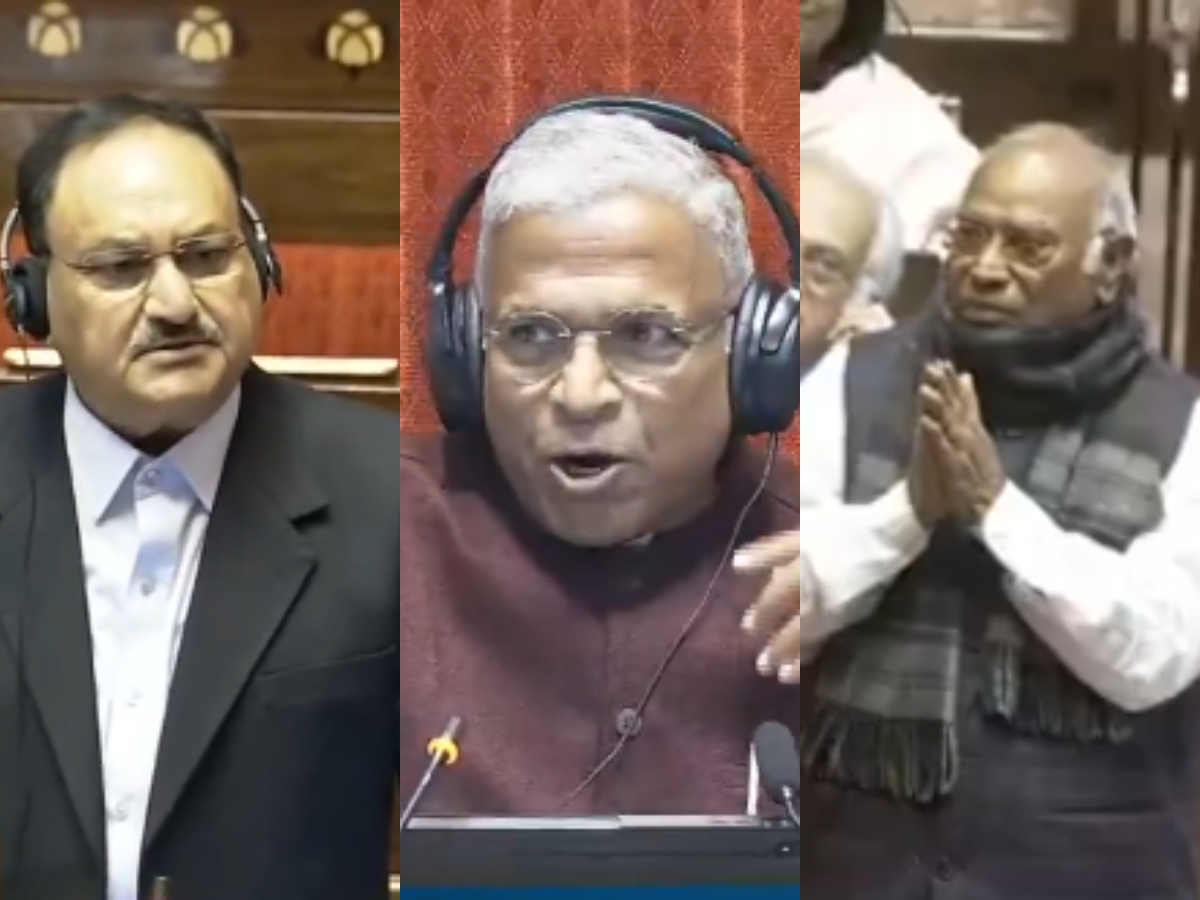
As the session commenced, Deputy Chairman Harivansh invited Congress leader Digvijaya Singh to initiate the discussion on the Education Ministry's functioning. Singh deferred, insisting that Kharge should speak first. The Deputy Chairman reminded Kharge that he had already spoken earlier in the day, but Kharge contended that his remarks were incomplete due to the absence of the Education Minister at that time.
Expressing frustration, Kharge exclaimed, "What is this dictatorship!" He further asserted, "We are prepared to speak, and whatever we need to hit, we will." He used the Hindi term "thokenge," which translates to "we will hit," implying the opposition's readiness to challenge the government's stance on the NEP. This expression prompted immediate objections from the treasury benches.
Leader of the House, JP Nadda, condemned Kharge's language, stating, "It is very unfortunate that the current Leader of Opposition, who has had a long and experienced tenure in both the state and Parliament, having led in Lok Sabha and Rajya Sabha, has used such language. This is highly condemnable." Nadda demanded that Kharge retract his statement and issue an apology.
In response, Kharge clarified that his remarks were directed at the government's policies, not the Chair. He stated, "I apologise to you [Deputy Chairman], I have not used these words for you. I apologise to you and not to the government. I am sorry if you were hurt by my remarks, I apologise to you." Despite his clarification, the Deputy Chairman ordered that Kharge's remarks be expunged from the official records.
The uproar in the Rajya Sabha is set against the backdrop of a broader debate on the NEP's three-language formula. The Tamil Nadu government, led by the Dravida Munnetra Kazhagam , has staunchly opposed this policy, viewing it as an attempt to impose Hindi on non-Hindi-speaking states. This opposition has led to a series of confrontations between DMK representatives and central government officials.
A day prior to the Rajya Sabha incident, Education Minister Dharmendra Pradhan criticised the DMK's stance on the language policy, accusing the party of being "dishonest" and "uncivilised." He asserted that the DMK was "ruining the future of Tamil Nadu students" by raising language barriers for political gain. Pradhan's remarks further intensified the ongoing debate over language imposition and the NEP.
The NEP's three-language formula aims to promote multilingualism in education by encouraging students to learn three languages, including Hindi, English, and a regional language. However, states like Tamil Nadu have resisted this policy, advocating for the continuation of their two-language system, which includes Tamil and English. They argue that the three-language formula undermines regional languages and cultures.
The exchange between Kharge and Nadda underscores the deep-seated tensions surrounding language policies in India. While the central government promotes the NEP as a means to enhance educational outcomes and national integration, opposition parties and regional governments perceive it as a threat to linguistic diversity and federalism.
The incident also highlights the challenges of maintaining decorum in parliamentary proceedings. The use of unparliamentary language not only disrupts the functioning of the House but also detracts from substantive policy discussions. Kharge's subsequent apology reflects an acknowledgment of the need for respectful discourse, even amidst sharp political disagreements.
